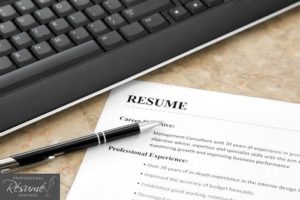What you say during your executive job interview plays a huge role in determining whether you get the job. On the same notion, your body language is a factor as well. You’ve worked hard to optimize your LinkedIn profile to get noticed and eventually land an interview, so learning some body language tips will help you succeed once you get there. Here are some of the top executive interview tips people don’t think about, but should.
Eye Contact Demonstrates Trust
Always make eye contact with your interviewer. Eye contact shows they can trust you, since people who don’t make good eye contact might have something they’re hiding. Of course, try to avoid staring as much as possible, so looking away occasionally will reduce some awkwardness.
 Firm Handshakes Show Confidence
Firm Handshakes Show Confidence
Follow up your strong executive profile with a strong handshake when you meet your interviewer. A firm handshake shows you are a confident person, so practice with peers or family members if you have to. A good handshake is memorable to an interviewer, since it’s likely the first in-person impression they have of you.
Have Good Posture
No interviewer wants to see a slouch in chair across from them. Slouching or posture other than sitting up straight shows you may not be too interested in the job. Even worse, slumping in your chair may indicate a lack of confidence, no matter how strong your executive profile is.
Be As Natural As Possible
Too many people spend way too much time studying interview questions and rehearsing their answers. While this is good to an extent, studying too hard can make you sound unnatural. If you used an executive resume writer to polish up and make your resume sound natural, translate some of their tips for your interview. Things like nodding and smiling are natural gestures, so don’t hold them back. The hard part is noticing the gestures you make as a nervous habit, so be careful not to use them to the point where they become unnatural.
Professional Resume Services does much more than simply write resumes. We can help you by giving advice on how to land interviews, what to do in interviews and even how to optimize your LinkedIn profile, just to name a few. Be sure to reach out to us if you need any assistance with any aspect of your executive job search.
LinkedIn can be an extremely valuable tool for executives. However, not knowing how to use it properly can also damage your reputation without you even knowing. LinkedIn isn’t difficult to use, but there are some unwritten rules about etiquette that many executives overlook. If you’re going to spend the time to write your executive profile on your LinkedIn page, you owe it to yourself to be familiar with these unwritten rules executives sometimes violate.
Personalize Your Connection Requests
When you connect with someone on LinkedIn, you could use the default message LinkedIn provides, or you could personalize it. Personalizing the request is valuable in many ways. You could state how you met the person, just in case it was at a networking event where they met dozens of other people. Or you could simply say you’re impressed with their profile and admire their work. Either way, a personalized request makes a much better impression.
Adjust Settings When Updating Your Profile
When you need to optimize your LinkedIn profile, you’re likely going to change a lot of different sections of it. What you may not know is all of your connections will see each and every change you make if you don’t update your settings accordingly. Go into the Privacy Controls of your profile and turn off update notifications to spare your connections from dozens of notifications. Turn it back on when you’re done updating it, so your connections will only see the important changes going forward.
Give Endorsements and Recommendations
The top resume writing services will tell you not to put too much emphasis on endorsements and recommendations through LinkedIn. However, giving and receiving the proper ones is important. Don’t ask for an endorsement from someone you didn’t work with directly. On the other hand, it’s not appropriate to give an endorsement or recommendation to someone you didn’t work with closely. These should be personalized and well thought out, so make them meaningful.
Connect With The Right People
If you’re actively searching for a job, connect with people who work in the same industry as you. With LinkedIn groups, you don’t even have to make a connection request until you get to know them as part of the group. It takes a little time to get to know someone through LinkedIn, but a single quality connection is much more valuable than a dozen connections from people you never met or have any association with at all.
Professional Resume Services is one of the top resume writing services for many reasons. We not only help with writing executive resumes, but we can also assist with cover letter writing, developing LinkedIn profiles and helping out with job searches in general. Feel free to contact us at any time to learn more about the written and unwritten rules of LinkedIn or anything else pertaining to your executive job search.
 Many executives make the mistake of simply rewriting their resume and calling it their biography. Including a lot of numbers, statistics and data may look impressive, but it’s not necessarily what needs to go on an executive profile. This is your chance to tell a story about your career that you can’t necessarily state on a resume. You should also reiterate and strengthen your brand when writing an executive bio. Here are some tips for what to include in your c-level executive biography.
Many executives make the mistake of simply rewriting their resume and calling it their biography. Including a lot of numbers, statistics and data may look impressive, but it’s not necessarily what needs to go on an executive profile. This is your chance to tell a story about your career that you can’t necessarily state on a resume. You should also reiterate and strengthen your brand when writing an executive bio. Here are some tips for what to include in your c-level executive biography.
The First Paragraph Must Grab Attention
If the first paragraph of your executive profile is bland, you’ll quickly lose the attention of your reader. Instead, start off your bio with a quote that highlights your brand, or make a strong statement to capture your reader’s attention another way. The more attention-grabbing the first sentence and paragraph is, the better chance you’ll have of the reader reading the entire biography.
Highlight Soft Skills And Attributes
You can’t include soft skills on your executive resume, in most cases. When writing an executive bio, you have a chance to not only demonstrate your soft skills and attributes, but also tie them in to how they enhance your brand and bring value to companies. Provide examples of how you’ve applied your skills in the past to bring them to life.
Support Your Success With Data
You shouldn’t pollute your entire executive profile with data, but sometimes it’s appropriate to provide some numbers for support. However, think of data you don’t already have on your resume. And instead of simply making a one-line statement to support your success, tell the story of how you were successful, including all the twists and turns. Just don’t take up too much of the reader’s time when you do so.
Provide Some Personal Insight
An executive resume service can help you write the first aspect of your bio, but there’s another point they can’t help you with as much. The part which deals with your personal life. You don’t want to get into many details about your life, but people want to know if you have a family, what ages your kids are, what your spouse does and what your hobbies and passions are. People connect with other people based on their personal interests rather than business success. When you have similar personal interests with other executives, they’ll be more likely to reach out to you since it seems like a natural fit.
At Professional Resume Services, we can help you piece together your executive profile to help it flow naturally. One of the hardest parts of an executive bio is making it easy to read and captivate the reader’s attention. When you’re ready to sit down and write your c-level executive biography, consider giving us a call to help you get started.
With the world of automation today, it can be virtually impossible to get your executive resume into human hands if you only submit it online through job boards. It may be much easier and convenient to send in your resume online, but there’s no guarantee it will ever been seen. Recruiters will scan resumes for certain keywords and keyphrases using technology in order to eliminate as many as possible. If yours isn’t formatted perfectly, or if you don’t use the right words, it will be quickly brushed off.
So how can you write resumes that get you hired, but have a better chance of getting them into human hands? Here are a few tips to consider.
Optimize Your Keywords
Keywords are the most essential component of any effective resume. Any executive resume writer will look at your skills, qualifications and accomplishments and simply reword them to use appropriate keywords for your industry. This is the best chance you have at getting your executive resume through the automated keyword filter.
 Look For Connections
Look For Connections
Sometimes the best way to get your resume into human hands is to bypass technology completely. When you make connections with people in your industry, you may not even have to send in a resume online. You still have to focus on writing an effective resume, so don’t think your connection will guarantee you an interview. It’s just one of the best ways to get around the initial resume submission stage.
Be Short and Concise
No one wants to read a long resume. You have an average of six seconds to impress a recruiter or HR manager. The first thing an executive resume writer should do is look how to tighten up sentences and sections. Try to keep your resume to two pages or less, but the shorter the better.
Choose Your Approach Carefully
Whether you choose to submit your resume online or in person, following up with the company is important to know where you stand. Sometimes your resume is filtered out right away because of keywords, but sometimes it could have been lost in the shuffle. Without checking in periodically, you may never know. Just be careful not to follow-up too much to the point where you look desperate.
Professional Resume Services helps executives with writing an effective resume every day. Our skilled professionals know the tricks to getting resumes into human hands, so if you are struggling with the process or need assistance in any way with your job search, feel free to contact us at any time.
With the widely known importance of writing an effective resume, more companies are popping up claiming they write the best ones. Choosing an executive resume service is a big decision relating to your executive career. It’s easy for these services to claim to be the #1 service, but how do you really know they aren’t just using a standard template and switching things around to make yours look unique?
There are plenty of ways to distinguish a legitimate executive resume writing service from a fraud. Here are some things to consider when you’re looking for one.
Make Sure They Are Experts In Your Industry
If the resume service doesn’t indicate specific industries they have experience in, then you may need to look elsewhere. Resumes have to be very specific and specialized. If they aren’t, recruiters will see right through them.
Ask For Credentials or Certifications
When you contact an executive resume service, the writer should be able to provide you with one or more certifications. Those certifications could include:
-
- Certified Expert Resume Writer (CERW)
-
- Certified Professional Resume Writer (CPRW)
-
- Certified Master Resume Writer (CMRW)
- Certified Executive Resume Master (CERM)
While these aren’t the only certifications and credentials available, your resume writer should be able to show proof of at least one of them.
Check Out Any Samples
Any executive resume service should have an abundance of samples to provide you. Sometimes the key to writing a professional resume is incorporating different ideas from other resumes into your own. This is a good practice for writing your own resume, but the best resume writing services will treat you as a unique individual instead of just another resume. Samples should be available, but only for your own benefit.
Talk to An Actual Resume Writer
It’s always important to call an executive professional resume service prior to hiring them. If you talk to a sales person who only offers you their different services instead of learning about you, then you need to look elsewhere. A good company will ask you insightful questions about your career, accomplishments and achievements to get a complete understanding of your background. This could be in the form of an online survey, a phone interview, an in-person interview or a combination of these. The more questions they ask you, the better you should feel about their service.
At Professional Resume Services, we take the time to get to know the backgrounds of each of our executives. We can’t write your executive bio unless we know your complete career history, accomplishments and aspirations, so gathering as much information as possible before getting started is key. Feel free to contact us to learn more about our services and how we can be the right executive resume service for you.
Working on your personal brand is more important now than ever before. Executives have typically considered their c-level personal branding as being associated with and representing the company they work for. However, the notion has shifted into marketing yourself as a person rather than as a part of a company.
When you work for a company, you still need to brand them as part of your job. The key is to also know when the right time is to work on yourself as well. Not doing so could hurt your long-term executive career prospects. Here are a few ways executive personal branding affects your executive career.
Establish Yourself as an Expert
When you focus on c-level personal branding, you can establish yourself as an expert in a particular industry, rather than for a specific company. Portraying yourself as the go-to executive for many different issues can be very valuable for your career. People need someone to rely on, and if you have the expertise, branding yourself as the person they can rely on can define you in that way.
Learn More About Yourself And Your Goals
Executive personal branding goes beyond writing an effective resume. It’s easy to portray yourself in a different light when you’re representing a company, even when you know it’s not the true you. How you brand yourself could give some insight into your own self, your value, worth and what you’re capable of.
Get Feedback From Peers to Improve Your Brand and Career
One of the best ways to improve c-level personal branding is to always seek feedback from colleagues and peers. You may believe you are taking all the right steps to market yourself appropriately, but you don’t know how you are perceived by others unless you ask someone you trust. Most executives won’t volunteer this information to you, so asking for feedback could open your eyes to some changes you need to make when representing yourself.
Link Your Online Brand With Your Personal Brand
You could be hurting yourself if the person you say you are online doesn’t match the person you are in real life. When you optimize your LinkedIn profile, don’t just write things to make yourself sound good. People will read your LinkedIn profile and have a general perception about you. That perception has to come close to matching in real life, so be sure the two are linked closely and accurately.
At Professional Resume Services, we always work with executives wanting to improve their personal brand. We understand the importance of personal branding when it comes to career advancement, job searching and other aspects. Feel free to contact us if you need any tips or advice on branding or any other aspect of your executive career.
When you sit down to write an executive cover letter, you may have many different thoughts running through your mind. Will the hiring manager even read this? Why can’t I simply regurgitate my resume? Aren’t all cover letters the same?
The truth is, cover letters are difficult to write when you write them properly. They shouldn’t be the same as your resume, and yes, hiring managers do read the good ones. You just have to make yours stand out from the rest by being appropriately creative in your writing. If this doesn’t seem like your style, here are some tips from a cover letter writing service to help you out.
Distinguish Cover Letters From Resumes
One mistake many executives make is turning their resume into paragraph form and calling it a cover letter. This isn’t the purpose. Your executive cover letter should show more of your personality and creativity, rather than your experiences in the industry. You will likely send in your resume and cover letter at the same time, so no one will want to read the same thing twice.
Be Brief and To The Point
Don’t include more than two or three paragraphs on your executive cover letter. In fact, cover letters closely resemble executive profiles, since they should just be short statements describing your value and what you bring to the table. No hiring manager wants to read a lengthy cover letter.
Showcase Your Ability to Help The Company
As far as the content of your executive cover letter goes, write more about how you can help the company, rather than focusing on your past achievements. You may need to use a cover letter writing service to help iron out the details. It’s easy to talk about how good of an employee you are, but everyone does that. When you demonstrate your knowledge about the company and tie in your experiences, your cover letter will stand out.
Be Creative and Conversational
As an executive, most resumes and cover letters you write are likely cut-and-dry. It doesn’t hurt to be a little creative, at times. Try writing your executive cover letter in more of a conversational tone. Incorporate random facts about your industry or tell a very short story to keep the reader engaged.
Professional Resume Services knows the ins-and-outs of a great executive cover letter. We are an executive resume writing service with expertise in resumes, cover letters, networking, LinkedIn profile development and more. If you’re struggling with your cover letter in any way, feel free to reach out to us at any time.
 Experienced executives have a lot of knowledge that may be beneficial to many other people. If you have a good amount of experience and have decent writing skills, you could enhance your career even further by starting a blog. Even new executives who may not have a lot of experience, but have a lot of ideas, can benefit from blogging.
Experienced executives have a lot of knowledge that may be beneficial to many other people. If you have a good amount of experience and have decent writing skills, you could enhance your career even further by starting a blog. Even new executives who may not have a lot of experience, but have a lot of ideas, can benefit from blogging.
Blogging usually isn’t something executives think of when it comes to boosting c-level personal branding. The benefits are proof enough for you to consider starting one, though.
Blogging Can Get You Noticed
You’d be surprised at how many executives like you search for different articles to help their craft. If your blog offers what they need, you may start building a nice collection of subscribers who want to read your material. Being noticed online in a positive light is one of the best ways to enhance your career.
You Could Build Your Network Through Blogging
You may already have hundreds of connections through your LinkedIn profile, but you can expand it even further with a blog. Consider putting the link to your blog in your LinkedIn profile as well, so your current connections know you have one. You never know who will read your material online, so it’s always best to put it out there as much as possible.
Blogging Will Put Your Name in Search Engine Results
If you’re actively searching for a job and have applied to several places, the first thing those companies will do is search for your name. Your LinkedIn profile is important to them, but they also want to see what else is on the Internet about you. When links to your personal blog with insightful topics and advice come up, you’ll have a better shot at landing an interview compared to someone who doesn’t show up in the search results at all.
Use Keywords and Write About Relevant Topics Naturally
Writing a blog is different than writing an executive bio. Use your blog as a chance to show your casual, laid back side rather than the uptight business professional you have to be every day at work. Incorporate the keywords you have to use throughout the day and talk about those topics as well, so you can relate to people in your industry. Being as natural as possible on your blog will be a relief to you and your readers.
At Professional Resume Services, we look for every way imaginable to boost your career. Whether it’s optimizing your resume, helping you incorporate your blog into your LinkedIn profile or writing your executive bio, we can help guide you in the right direction. Feel free to contact us at any time for advice on blogging or any other topic related to your career advancement.
 Firm Handshakes Show Confidence
Firm Handshakes Show Confidence







